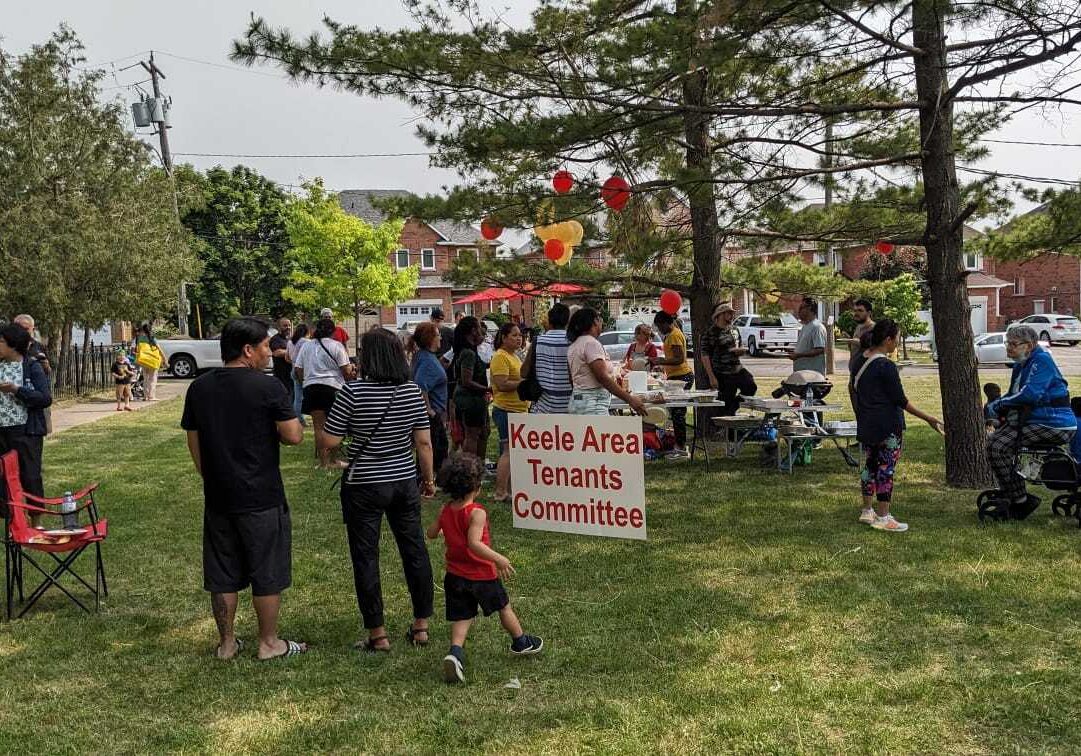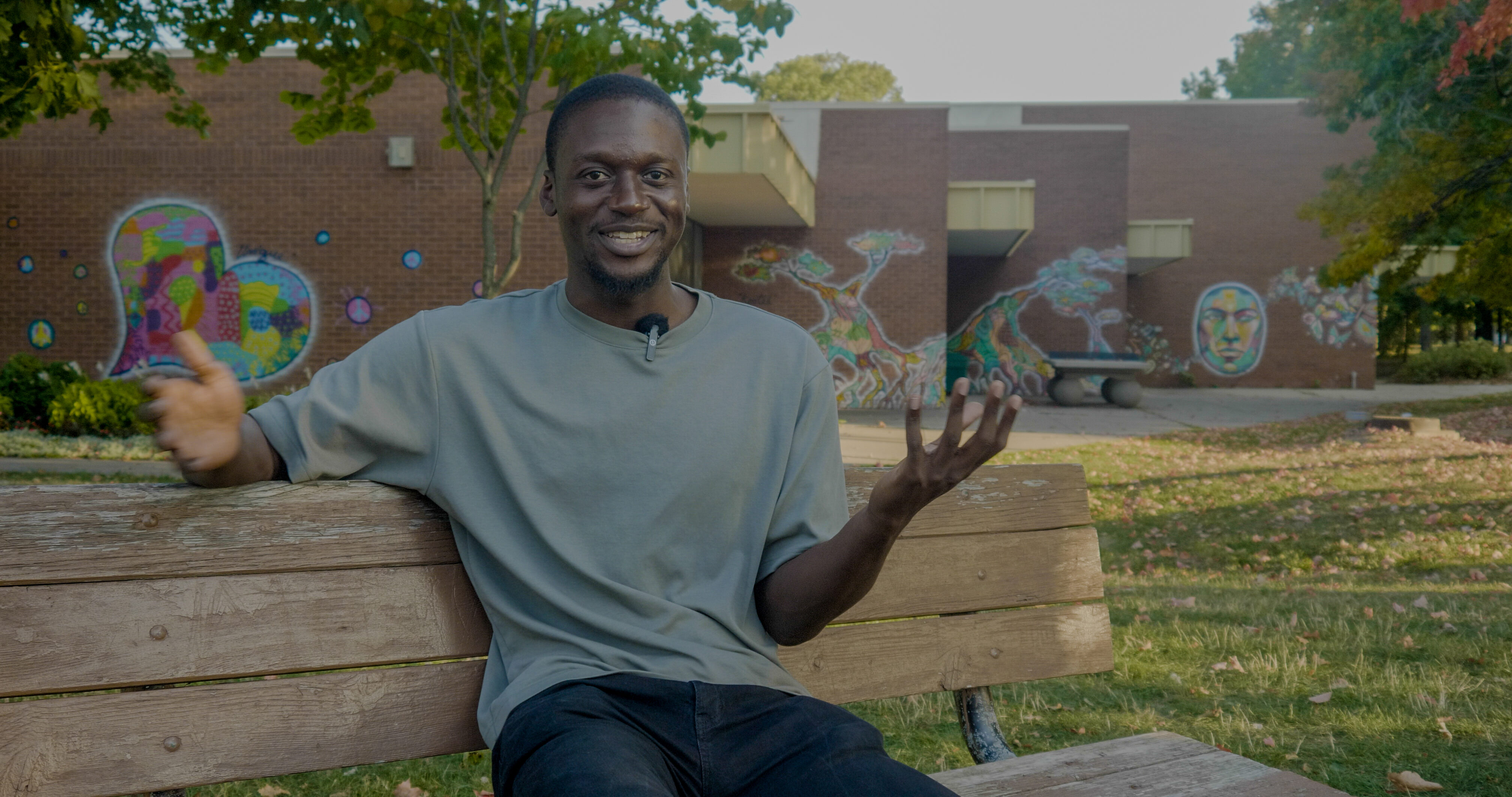THE GREEN LINE'S
CHANGEMAKER INTERVIEW
How to tackle housing challenges with organizer Flynn Daunt
For our January Changemakers newsletter, we spoke with community organizer Flynn Daunt about renovictions, tenant advocacy and working with the Keele Area Tenants Committee.

AN EVENT HOSTED BY THE KEELE AREA TENANT COMMITTEE.


Adele Lukusa
A graduate of TMU, Kitchener native enamoured with Toronto and lover of Jamila Woods. Currently working on supporting mutual aid efforts and unpacking the nuances of Black haircare.
Jan. 8, 2025
It all started when Flynn Daunt was served an eviction notice.
Organizing was a necessity. So, he and his neighbours in his Keele Street building came together as a collective to push back against their landlord attempting to evict them.
They succeeded in stopping the renoviction — or eviction for renovations — of their building in 2020, and again in 2021. But Flynn and his neighbours didn’t want to stop there. They decided to share their efforts with others who find themselves in similar situations.
In 2023, they created the Keele Area Tenants Committee — and with it the opportunity to help other North York renters with their landlord disputes and eviction notices.
|
|||||||||||
|
Fact-Check Yourself
Sources and
further reading
Don't take our word for it —
check our sources for yourself.
Care about our city, but don't know how to make it better? Sign up for simple, step-by-step guides to solving problems in your neighbourhood — one small action at a time.
